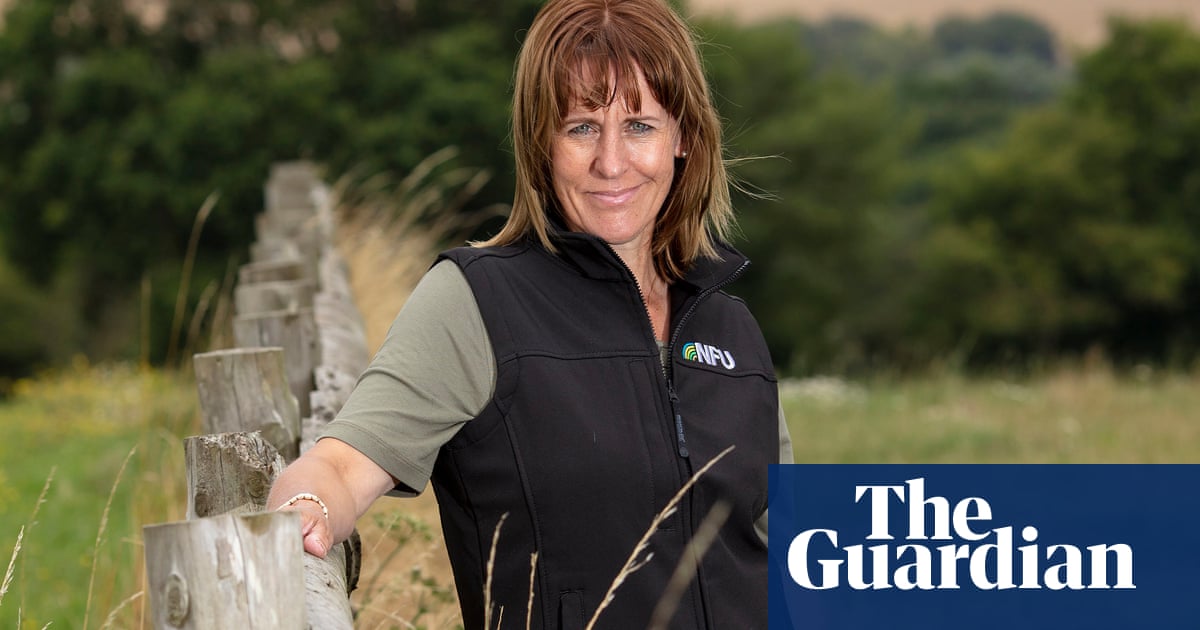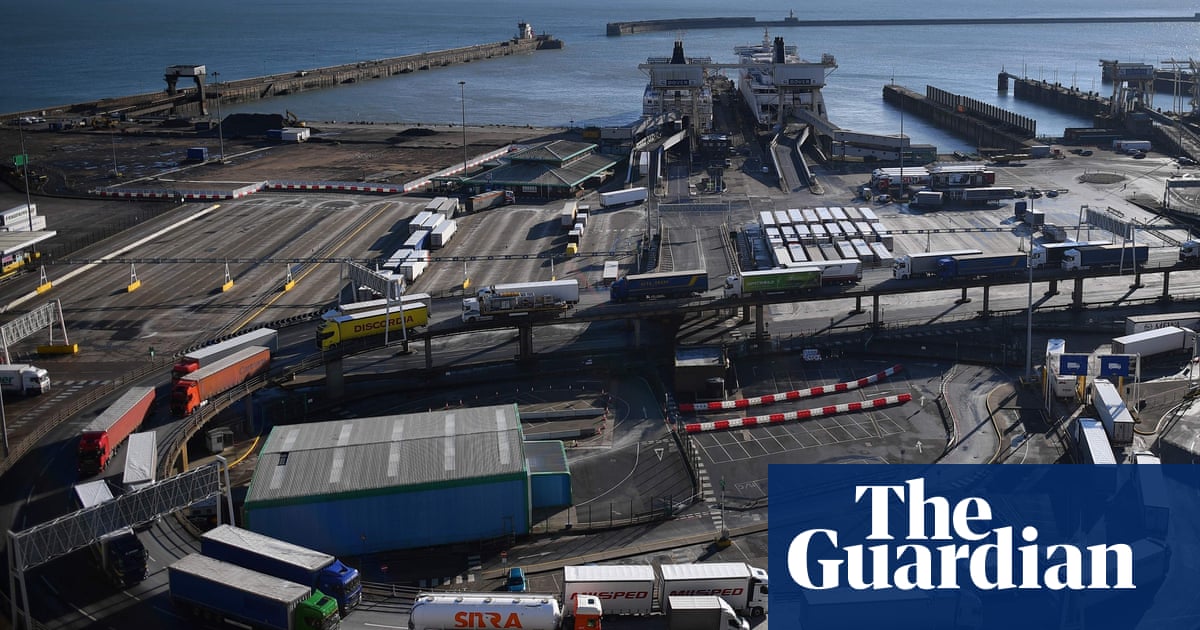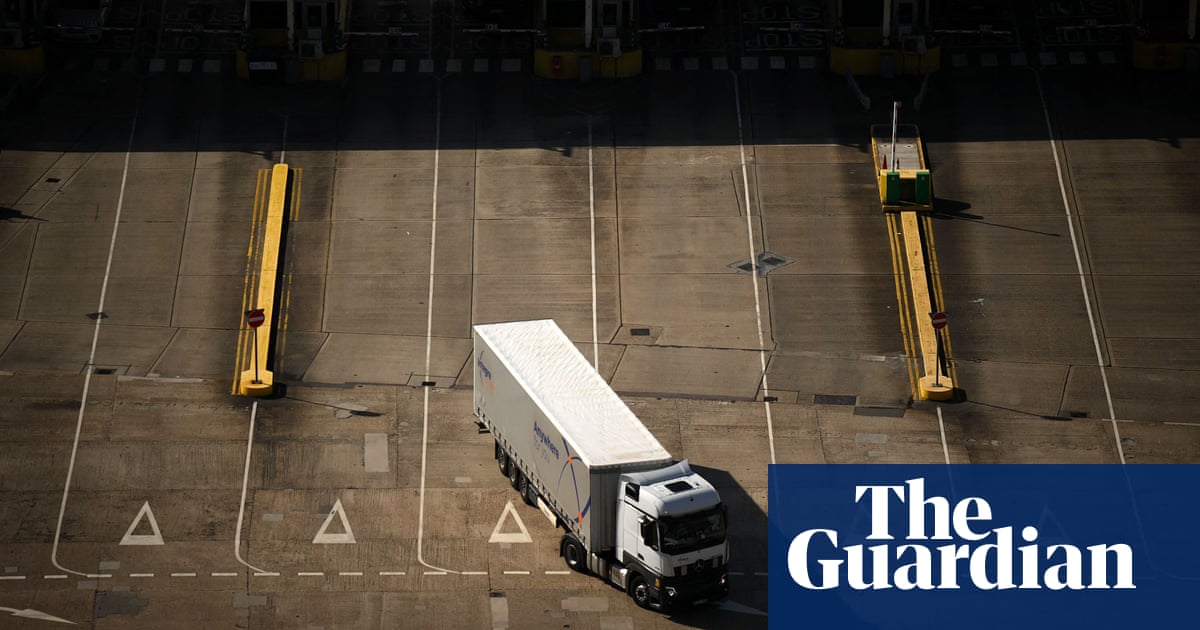
The UK will be flooded with cheaply produced food should it lower its regulatory standards after Brexit, Brussels has warned, echoing a new animal and child welfare campaign backed by the celebrity chef Jamie Oliver.
On the eve of a crunch round of negotiations in Brussels over the UK’s future trade and security relationship with the EU, the European council president, Charles Michel, said Boris Johnson’s government faced a major choice with just three months left of the transition period in which the UK remains in the single market.
In a speech in which he spoke of the UK facing the EU’s “quiet strength” over the four years of talks, Michel, a former prime minister of Belgium, claimed that “the British face a dilemma” over whether to move away from European standards.
“What model of society do they want?” Michel asked. “Do they prefer to maintain high quality standards – health, food, environmental – or, on the contrary, do they want lower standards, [to] subject their farmers and their competitors to unfair and unjust competition from other regions of the world? It is the answer to this question that will determine the level of access to our internal market.”
On Sunday, a group of celebrities, including Oliver, the lifestyle coach Joe Wicks, BBC Countryfile presenter Anita Rani and chef Hugh Fearnley-Whittingstall, with the backing of the RSPB and RSPCA, launched a campaign demanding assurances that “lower-standard” meat, such as US-produced chlorinated chicken or hormone-fed beef, will not be sold in British shops or served in restaurants and workplaces once the UK has left the EU.
The alliance claimed the coronavirus pandemic had “raised the stakes” because “now, more than ever, we need to make sure everyone has access to affordable, good quality and sustainable food to help people be healthier, happier and more resilient”.
The UK’s chief negotiator, David Frost, and his team will renew negotiations with the EU side led by Michel Barnier on Tuesday, with the issue of a so-called “level playing field” in food, environmental and work standards for both European and British businesses high on the agenda.
The EU is seeking assurances not only of “non-regression” from current standards but for there to be a mechanism for both sides to raise them in tandem in the future. British negotiators have rejected any clauses that tie the hands of the government.
The most contentious issue in this strand of the negotiation is the issue of how the UK will control domestic subsidies in the future.
In recent days, there have been reports of renewed optimism in Downing Street that a solution on both these issues, and that of EU access to British fishing waters, can be found in time to avoid a no-deal exit from the transition period.
But government sources on Monday described such reports as “on the enthusiastic side”. The prime minister’s spokesman said: “Although the last two weeks of informal talks have been relatively positive, there remains much to be done. The fundamentals of our position have not changed from the start of this process.
“We continue to be asked to accept provisions which do not reflect the reality of our status as an independent country.”
Johnson has previously said that an EU leaders summit on 15 October is his deadline for a deal, after which the UK would focus on no-deal preparations. The spokesman appeared to backtrack from that position on Monday, describing it merely as a “timetable we need to work to”.
Brussels believes the real deadline for a deal to be struck to allow time for ratification is the end of October or first week of November.
Meanwhile, on Monday the EU appeared to soften its own deadline for when the UK government must withdraw the contentious clauses in the internal market bill which would lead to a breach of international law.
Maroš Šefčovič, the European commission’s vice-president, had previously said the UK needed to dump the problematic clauses by this Wednesday but, following a morning meeting with Michael Gove, his co-chair of the EU-UK joint committee on implementation of the withdrawal agreement, he appeared to concede that the EU was willing to bide its time. “We are going to proceed with the negotiations,” he said. “We are going to use every single minute.”
While Šefčovič did not spell out what would happen to trade and security talks if the UK did not back down, EU sources were more frank. “There is no way that as long as this threat is pending that we agree to that finalised [trade and security] deal.”












